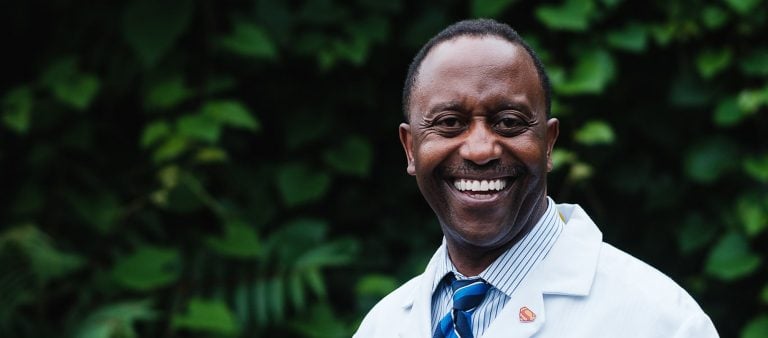Mock Interviews Are Key for the Prepared Predental Student
What can you do to prepare for the dreaded dental school interview?
Written by: Leigh Reynolds
Published on: June 13, 2013
What can you do to prepare for the dreaded dental school interview?
Written by: Leigh Reynolds
Published on: June 13, 2013
Dr. Anthony S. Youn talks about his book and shares his insights about the medical profession and the field of plastic surgery.
Written by: Juliet Farmer
Published on: November 2, 2011

Dr. Jeremiah Fleenor discusses strategies for answering the question, "What will you do if you don't get into medical school?", as well as how to strengthen your application for future application cycles.
Written by: Jeremiah Fleenor
Published on: June 8, 2011
Michelle Au, MD, is an attending physician of anesthesiology at St. Joseph's Hospital, Atlanta, and author of "This Won't Hurt a Bit".
Written by: Juliet Farmer
Published on: May 8, 2011

Do you know what to expect when interviewing at a medical school that uses the multiple mini-interview format? Dr. Carleen Eaton provides an overview of this method and tips for success.
Written by: Carleen Eaton
Published on: January 5, 2011

The Successful Match interviews Dr. Vicki Marx of USC Keck School of Medicine about the radiology residency selection process.
Written by: Rajani Katta and Samir Desai
Published on: October 10, 2010

It's residency interview season. Learn strategies for residency interview success from the authors of The Successful Match.
Written by: Rajani Katta and Samir Desai
Published on: November 1, 2009
A detailed discussion of the volunteer, employment and scholarship opportunities available through the Indian Health Service.
Written by: William H. Burnett
Published on: August 30, 2009
An interview with Dr. Marianne Green, an expert on the views of program directors and the relative importance of residency selection criteria.
Written by: Rajani Katta and Samir Desai
Published on: May 10, 2009
Keys to make your application stand out from the crowd.
Written by: Jessica Freedman
Published on: May 3, 2009
Should you follow-up with programs after an interview? How do you pick someone to write your letter of recommendation? What is appropriate to discuss at your interview?
Written by: Jessica Freedman
Published on: February 9, 2009
So you’ve scheduled an interview at your dream school and bought your plane ticket, but where will you stay the night before the interview?
Written by: Sameer Apte
Published on: January 8, 2009

You’ve been waiting for what seems like an eternity. You practically snatch the mail from ... Read more
Written by: SDN Staff
Published on: October 13, 2008
Dr. Harry Rosen was born in Israel and received his bachelor’s degree from California State ... Read more
Written by: SDN Staff
Published on: October 1, 2008
Optometrist Michael Hyde graduated from the University of Houston in 2002. He currently practices on ... Read more
Written by: SDN Staff
Published on: June 18, 2008
Otha Myles, M.D. is the Deputy Chief of Epidemiology and Threat Assessment at Walter Reed ... Read more
Written by: SDN Staff
Published on: June 7, 2008
After starting out as a failed journalism major, Dr. Lawrence Terra wound up graduating ... Read more
Written by: SDN Staff
Published on: May 24, 2008

An SDN interview with family medicine leader, Gary LeRoy, MD. SDN: Gary, your resume is ... Read more
Written by: SDN Staff
Published on: May 7, 2008

Lee C. Rogers, DPM is the director of the Amputation Prevention Center at Broadlawns Medical ... Read more
Written by: SDN Staff
Published on: March 15, 2008